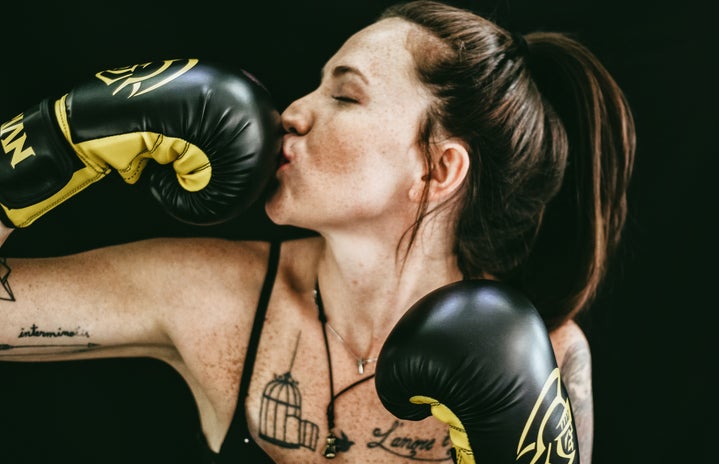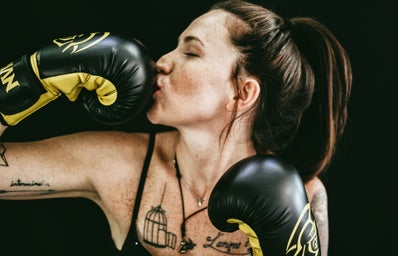Imagine the honor of being the first woman to win the female Ballon D’or. Now, imagine having this moment ruined by some guy asking you to twerk. It seems like an episode of The Office, right? But it happened in real life with Ada Hegerberg. The norwegian player, who also won the 2016 UEFA Best Women’s Player in Europe Award, had her moment overshadowed by the ridiculous request of the Dj Martin Solveig.
The inequality of salaries, the minimization of their athletes skills, the little audience they receive or the terrible conditions and chances to be where they are aren’t enough. The fewer visibility the female athletes receive are commonly ruled by their image more than their talent and achievements in sports. Hegerberg is one case in the middle of many others.
Brazilians have the sport in their veins. Babies are born with a soccer team in their blood, at least that’s what they’re told. But there’s a side of this history you do not know. The sport that is the only thing capable of reuniting the population in the middle of the political war in the country, and also the only thing that can divide the population even more, was prohibited to women until 1979. In the decree that prohibited the practice to females was written that the measure was instituted to “prevent the reproductive health” of them.
Nowadays, women can play soccer but this doesn’t mean they have won the battle for equality and respect. “Develop actions that enhance the beauty and the sexuality of female players to attract male audiences” was the plan of Paulista’s Soccer Federation in 2001. Not making improvements in the conditions of the championship. Not giving visibility to the importance of women in sports. But enhancing the beauty and the sexuality of them. Not to attract investors. Not to attract the cheer. But to attract male audience. 20 years later and a lot hasn’t changed.
Atlético Mineiro, a brazilian team, was accused of sexism multiple times: as if had treating an condemnation for rape as a “personal matter” in the Robinho situation wasn’t enough, in 2016 in the presentation of the cast of the women’s team for the season, the rooster -Atletico’s mascot- asked the defender, Vitória Calhau, to spin while hintting he had liked how she looked. The tennist, Eugenie Bouchard, received the same request after winning a game. She did spin but later she said she would be fine being asked to twirl if they also asked guys to flex their muscles.
Another tennis player, Maria Sharapova, was several times more commented on for her beauty than for how she was playing during her games. While Serena Williams was multiple times criticized for her muscle body. That body made her win 23 grand slams.
It’s not rare to see sexualized photos of female volleyball players focusing only on their bodys, when the match should be the subject. The small shorts are only about the mobility to play, not for a sexy photoshoot.
It’s not alright that many soccer teams only made v-neck shirts for their female fans even when it’s different from the official player’s uniform of the season. In 2015 Manchester United and Adidas involved themselves in a polemic after launching a women’s low-cut shirt.
If female track stars are using or not makeup during a race can’t be an agenda, but it was. This happened during the 2016 Rio Olympics when male commentators from Fox News criticized women who weren’t using makeup.
Those women want, deserve and should be seen like the athletes they are. Everytime someone focuses on their faces or bodies, it’s like their merit and quality in sports are being minimized. It’s not just about equality. It’s, over all, about respect.
——————————————————————
The article above was edited by Laura Enchioglo.
Liked this type of content? Check Her Campus Casper Libero home page for more!


